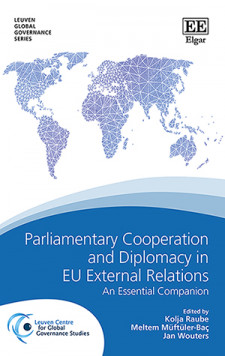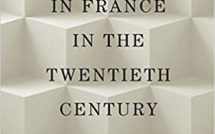

Hitler’s American Friends: The Third Reich’s Supporters in the United States
By Bradley W. Hart
Publisher: Thomas Dunne Books
Recommended by Louie Dean Valencia-García
In recent years historians have started to deconstruct the facile narrative “us versus them” when analyzing the history of fascism and Nazism. Bradley W. Hart’s new work contributes to this new emerging dialectic. Hart’s interweaving of the histories of the United States and Europe urgently demonstrates how quickly an idea can develop and deform. Similar to how James Whitman’s Hitler’s American Model: The United States and the Making of Nazi Race Law demonstrated how American racism and Jim Crow laws influenced the Nazi state, Hart’s careful eye demonstrates ways in which Americans thus took elements of Nazism and transformed it into their own—an inbreeding of ideologies. From famed aviator Charles Lindbergh, to the American religious right, to US senators, businessmen, and students, Americans across the country rallied behind the so-called “America First” platform. Lindbergh, who was championed by his supporters as the “American Hitler”—who Hart describes as the “ideal figure to serve as a future American Führer”—pushed an agenda to keep the United States from lending aid to Britain against Hitler—whilst expressing rampant anti-Semitism and Nazi sympathies. Indeed, as possibly the most famous man of his era, the first “man of the year” to be featured in Time magazine, the headwinds blew strong behind the would-be fascist.
As though sending us a warning from the past, Hart reminds the reader of Vice President Henry A. Wallace’s words: “The American fascists are most easily recognized by their deliberate perversion of truth and fact…They use every opportunity to impugn democracy… Their final objective toward which all their deceit is directed is to capture political power so that… they may keep the common man in eternal subjection.” In this well-researched work, Hart reminds his readers that nationwide, from New York to San Francisco, there “was truly a nationwide ‘Plot against America.’” Hitler’s American Friends is a message in a bottle, reminding us that the fascist ideologies are indeed home grown dangers and part of a trans-Atlantic history.

Défense de la Modernité
By Alain Touraine
Publisher: Seuil
Recommended by Hélène B. Ducros
What is the nature of society in the post-industrial era? In Défense de la Modernité, French sociologist Alain Touraine, who spent his career studying social movements and the transition to a post-industrial world—in particular examining labor—presents his theory for a new social paradigm. This model of individual and social life is based on emerging actors and dynamics that depart from post-modernists’ discourse of social decay and stand against the proponents of economic determinism and other negative projections of the future that he decries as making no recommendations for reforms and doubting social actors’ capacity to influence history. Asserting his reading of Joseph Stiglitz’s thesis that economic inequalities result from political choices that can be traced throughout history, his vision of a new social temporality gets rid of all determinisms, whether religious, materialistic, economic, or functionalist. His answer is “hypermodernity,” a world of action where material civilization, human creative consciousness and modes of social domination and conflicts are interdependent. Touraine explains that whereas the previous social era focused on creating the means for creativity, the hypermodern society aims at creating creativity itself. In the face of our history, we are not only creatures, but become creators: self-conscious, self-transforming, and self-creating. In this world, education and communication reinforce cultural power, which dislodges politics and economics as primary centers of social action.
For Touraine, modernité means “subjectivation” (respect for the fundamental human rights of liberty, equality and dignity) and entails faith in ourselves as creators of our freedom from “the prison in which we have been kept by those who believe in the natural laws of economics”. He presents the 21st century as that of the battle between subjectivation, where social conscience is at the heart of conflicts, and disubjectivation. Drawing from real world events, Touraine’s humanist conceptualization rests on the capacity to mobilize new social movements that can buttress the struggle towards human rights and against greed and the quest for power. Particularly pertinent in the current Gilets jaunes crisis in France, this book comes in the lineage of Touraine’s long-term effort at understanding the end of industrial societies and grasping the world it yields. This opus is not the nonagenarian’s last word. He has already announced a next book, which we await.

Parliamentary Cooperation and Diplomacy in EU External Relations
Edited by Kolja Raube, Jan Wouters and Meltem Müftüler-Bac
Publisher: Edward Elgar
Recommended by Daniela Irrera
In a period marked by nationalism and populism, the relevance of the roles played by parliaments is sometimes underestimated and rather deserves greater attention. The book edited by Raube, Wouters and Müftüler-Bac gathers a group of leading scholars in the field of parliamentary studies and contributes to bridge a gap in a very sensitive policy field, that is to say the external relations of the European Union. A wide list of approaches and theoretical and empirical investigations demonstrates that, despite the dominant influence of the executive branches of government, not only networking of parliaments has enlarged, but also traditional and innovative roles, i.e. control and conflict mediation, have been amplified and diversified. Therefore, parliaments are far from being put aside.
Published on February 5, 2019.




